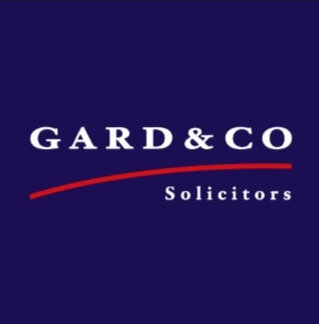Best Landlord & Tenant Lawyers in Plymouth
Share your needs with us, get contacted by law firms.
Free. Takes 2 min.
Free Guide to Hiring a Real Estate Lawyer
List of the best lawyers in Plymouth, United Kingdom
About Landlord & Tenant Law in Plymouth, United Kingdom
Landlord and tenant law in Plymouth, United Kingdom is primarily governed by national legislation, notably the Housing Act 1988, as well as key local regulations. This area of law oversees the rights and responsibilities of both landlords and tenants concerning residential and some commercial properties. The aim is to ensure fair rental practices, provide security of tenure for tenants, and establish reliable dispute resolution processes. In Plymouth, as with the rest of England, the local context may affect certain procedures, such as housing standards enforcement and council involvement in tenancy issues.
Why You May Need a Lawyer
Individuals may require legal advice or representation in landlord and tenant matters for a variety of reasons. Common situations include disputes over unpaid rent, eviction notices, repairs not being carried out, disagreements about deposits, illegal eviction, and issues with tenancy agreements. Both landlords and tenants can benefit from legal guidance to understand their rights, fulfill their obligations, or resolve conflicts effectively. A lawyer can also help interpret complex documentation, represent clients in court or tribunals, and ensure compliance with ever-changing regulations.
Local Laws Overview
Plymouth tenants and landlords are bound by national statutes, but some issues are affected by local policies. Key regulations include:
- Tenancy Agreements: Most residential tenancies in Plymouth are assured shorthold tenancies. These should be in writing and set out rights, responsibilities, rent amount, and duration.
- Deposits: Landlords must protect tenant deposits in a government-approved scheme and provide prescribed information about the scheme within 30 days.
- Eviction Procedures: Formal notices such as Section 8 and Section 21 must be used for eviction. Incorrect or unlawful eviction can result in severe penalties.
- Repairs and Safety: Landlords are legally obliged to maintain property standards, including gas, electrical, and fire safety. Plymouth City Council enforces housing standards and can intervene in case of hazardous conditions.
- Licensing: Some properties, especially houses in multiple occupation (HMOs), require local authority licensing.
- Anti-Social Behaviour: Landlords may need to address tenant behavior that affects neighbors, and the council may issue notices if required.
Frequently Asked Questions
What is an assured shorthold tenancy?
An assured shorthold tenancy (AST) is the most common type of residential tenancy in Plymouth and throughout England. It gives tenants the right to live in the property for a fixed period or on a rolling basis but allows landlords to regain possession after serving proper notice.
How can I end my tenancy if I am a tenant?
If you have a fixed-term contract, you can usually end your tenancy by giving proper notice in writing before your fixed term ends, or as allowed in your agreement. If your contract is periodic, check your agreement for the notice period required. Always confirm the valid method of serving notice.
What can I do if my landlord refuses to repair my property?
If your landlord does not carry out necessary repairs, you should report the issue in writing. If they still do not respond, you can contact Plymouth City Council, which may inspect the property and order repairs if health or safety is at risk.
Can my landlord increase the rent whenever they want?
Landlords must follow the terms of the tenancy agreement for rent increases. In fixed-term tenancies, rent cannot be increased unless the contract allows it. In periodic tenancies, landlords must serve a proper notice before making any changes.
What is deposit protection and why does it matter?
Deposit protection means your deposit must be held in a government-approved scheme. It ensures you get your deposit back at the end of your tenancy if you meet the terms of your rental agreement, do not damage the property, and pay rent and bills.
How do I challenge a Section 21 eviction notice?
You can challenge a Section 21 notice if your landlord did not meet legal requirements, such as protecting your deposit or providing necessary paperwork. Seek legal advice immediately if you receive such a notice for guidance on your specific situation.
Can my landlord enter the property without my permission?
No, landlords must provide at least 24 hours' notice in writing before entering, except in cases of emergency. Entry should be at a reasonable time and for a valid reason.
What is considered illegal eviction?
Illegal eviction occurs if a landlord tries to force you out of your home without following the proper legal process, such as changing the locks without notice or using threats. Victims can seek urgent legal assistance and report to the local council.
How can I recover my deposit if my landlord is withholding it unfairly?
If your deposit is protected, you can use the dispute resolution service provided by the scheme. If not resolved, you may take the matter to a small claims court. Document all communications and gather evidence.
Who is responsible for paying council tax?
Generally, the tenant is responsible for council tax in a standard tenancy. However, landlords may be responsible in HMOs or when a property is vacant. Always check your tenancy agreement and confirm with Plymouth City Council.
Additional Resources
Several organizations can offer information and support for landlord and tenant matters in Plymouth:
- Plymouth City Council Housing Department - Provides advice on housing standards, deposit schemes, licensing, and legal issues.
- Plymouth Citizens Advice - Offers free and confidential advice on housing and tenancy rights.
- Shelter - National charity providing specialist advice on housing rights and homelessness.
- The Property Ombudsman - Resolves disputes between tenants and letting agents.
- Tenancy deposit protection schemes - Facilitate deposit-related disputes and guidance.
Next Steps
If you are facing a landlord and tenant issue in Plymouth, start by consulting your tenancy agreement and documenting all correspondence. Seek initial advice from a local advice centre such as Citizens Advice or a housing charity. For more complex issues, illegal eviction, or possible court action, contact a qualified solicitor who specialises in landlord and tenant law. Plymouth residents may also contact the City Council for enforcement or inspections regarding repairs and safety standards. Remember, legal timelines are often strict, so act promptly to protect your rights.
Lawzana helps you find the best lawyers and law firms in Plymouth through a curated and pre-screened list of qualified legal professionals. Our platform offers rankings and detailed profiles of attorneys and law firms, allowing you to compare based on practice areas, including Landlord & Tenant, experience, and client feedback.
Each profile includes a description of the firm's areas of practice, client reviews, team members and partners, year of establishment, spoken languages, office locations, contact information, social media presence, and any published articles or resources. Most firms on our platform speak English and are experienced in both local and international legal matters.
Get a quote from top-rated law firms in Plymouth, United Kingdom — quickly, securely, and without unnecessary hassle.
Disclaimer:
The information provided on this page is for general informational purposes only and does not constitute legal advice. While we strive to ensure the accuracy and relevance of the content, legal information may change over time, and interpretations of the law can vary. You should always consult with a qualified legal professional for advice specific to your situation.
We disclaim all liability for actions taken or not taken based on the content of this page. If you believe any information is incorrect or outdated, please contact us, and we will review and update it where appropriate.











